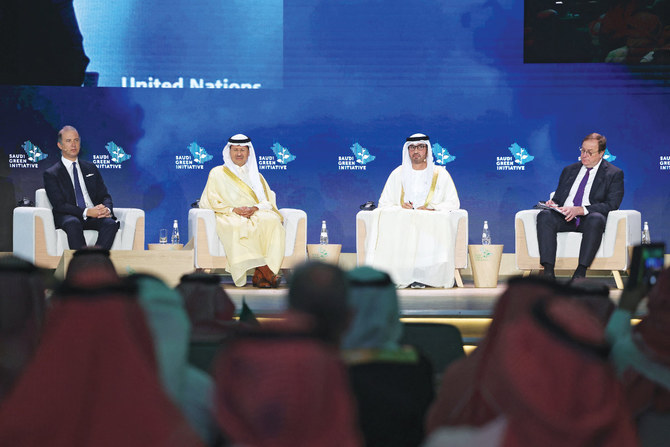RIYADH: Saudi Arabia, the biggest oil exporter in the world, has committed itself to a carbon-neutral future at the Saudi Green Initiative in Riyadh.
Announcing a plan to reach “net zero” in carbon by 2060, Crown Prince Mohammed bin Salman on Saturday said the move was in line with the Kingdom’s development plans, “while preserving and reinforcing its leading role in the security and stability of global energy markets.”

Crown Prince Mohammed bin Salman announcing a plan to reach net zero by 2060 at the opening of the Saudi Green Initiative forum. (Screen grab from SGI video)
In a related announcement, Amin Nasser, the president and chief executive of Saudi Aramco, revealed plans to make the world’s biggest oil company a “net zero” operation by 2050. “The road will be complex and the transition will have challenges, but we are confident we can meet them and accelerate our efforts to a low-emission future,” he said.
The pledges were the most eye-catching items on a day when Saudi Arabia reasserted its ambition to lead the world in the battle against climate change, while retaining its traditional leadership in oil and gas markets.

Amin Nasser, the president and chief executive officer of Saudi Aramco, (AN photo)
Nasser added: “We are not abandoning our existing sources of energy, but investing in new sources as well.”
Also notable was a commitment to double the amount of carbon the Kingdom will cut in its domestic economy, removing 278 million tons of the pollutant per year by 2030.
“These initiatives aim at modifying the Kingdom’s energy mix, rationing and increasing the efficiency of energy production and use, and investing in new energy sources, including hydrogen,” the crown prince said.
He also unveiled the first phase of the plan to eventually plant 10 billion trees in the Kingdom over coming decades, with an initiative to plant 450 million trees by 2030, rehabilitating 8 million hectares of degraded land, and allocating new protected areas, to bring the total of protected land in Saudi Arabia to more than 20 percent of its total.
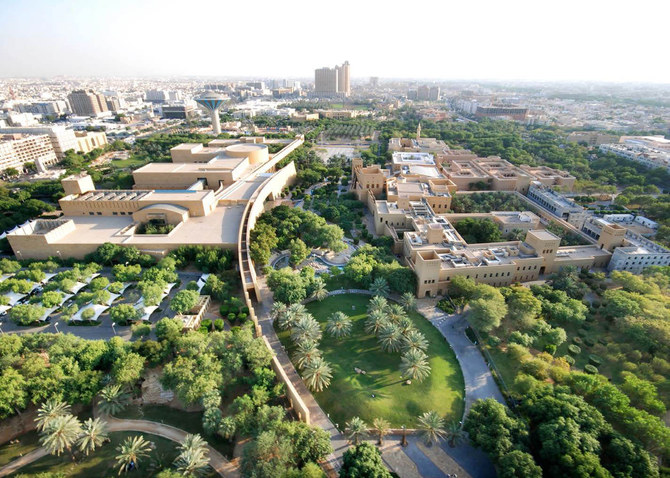
Saudi Arabia aims to plant more than 10 billion trees in the next two decades as part of the Saudi Green Initiative.
Much of the domestic initiative will be focused on the capital Riyadh, already in the middle of a “green” regeneration. “The transformation of Riyadh into one of the world’s most sustainable cities is already underway,” the crown prince said.
The first set of the new “green” initiative would require investment of SR700 billion, boosting job creation in Saudi Arabia and presenting investment opportunities for the growing private sector, in line with the Vision 2030 strategy to reduce economic dependency on oil.
But it was the net zero commitment and the pledge to remove twice as much carbon than before that caught the attention of the hundreds of attendees in Riyadh, coming as it did just days before the start of the UN’s COP26 summit on climate change in Glasgow, Scotland.
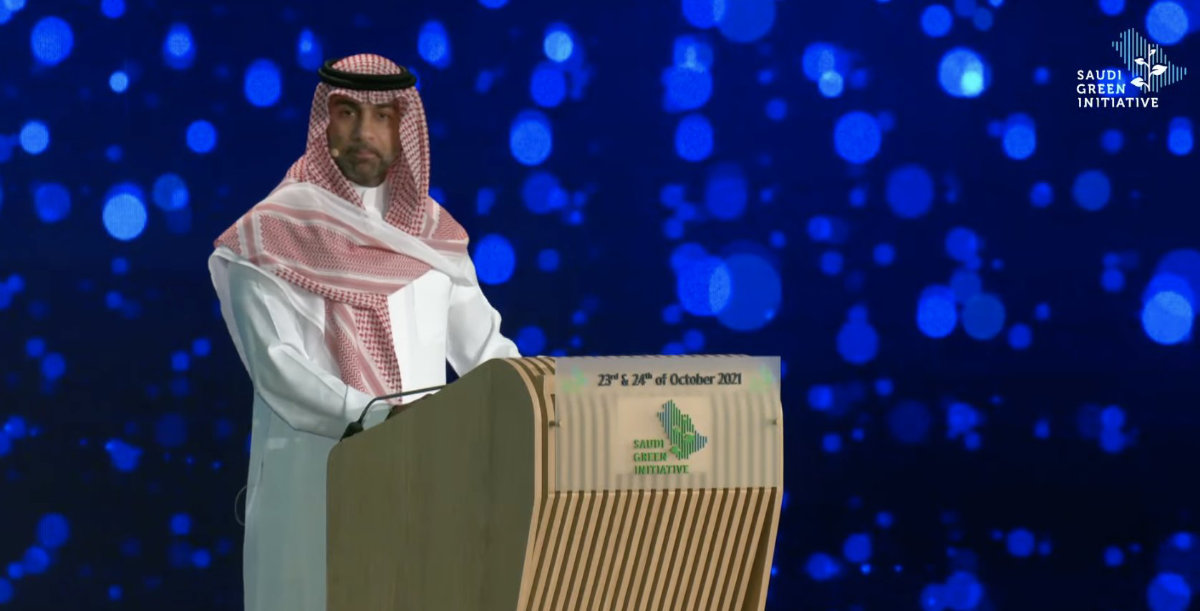
Fahad Al-Rasheed, president of the Royal Commission for Riyadh City. (AN photo)
The Kingdom joins a growing number of countries that have pledged net zero by 2060 — such as China and Russia — rather than the accelerated goal of 2050 some Europeans and North Americans want.
INNUMBERS
278 million tons of carbon will be removed by 2030 in the Kingdom.
10 billion trees will be planted in Saudi Arabia over the next decades.
13 million Saudi Arabia’s new oil production capacity in bpd.
Some environmental activists have in the past criticized the Kingdom for not adopting a net zero target, and for not doing more to cut domestic carbon output. The new targets will go a long way to satisfying critics of the Kingdom as part of the debate on “nationally determined contributions” (NDC) that could figure prominently in COP26.
Nasser said: “We have to consider that this announcement comes from the biggest hydrocarbon producer in the world. To make that type of commitment is something great, and I’m sure others will follow the leadership of the Kingdom.”
Prince Abdulaziz bin Salman, the Saudi energy minister, thought that the Kingdom could meet the net-zero commitment before the 2060 timetable, using the framework of the Circular Carbon Economy, which aims to reduce, reuse, recycle and remove CO2 greenhouse gasses.
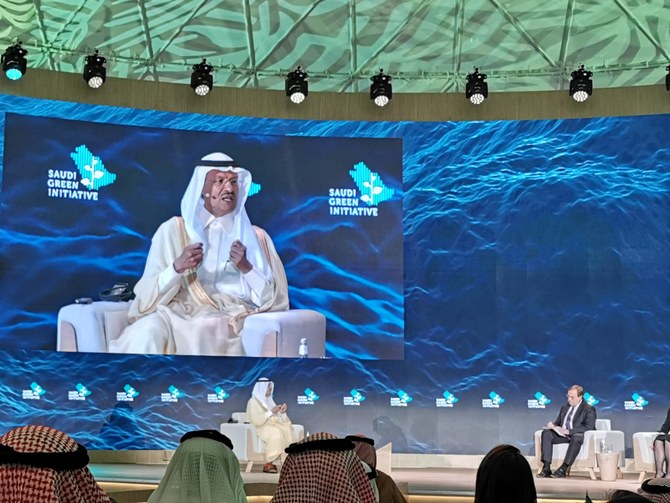
Prince Abdulaziz bin Salman, Saudi energy minister, speaking during the forum. (AN photo)
He said that technologies to help meet the new targets would be fully mature by 2040, boosting the plans to meet the goals and providing an example to others.
“The Kingdom is not seeking financial support or grants to achieve this NDC and it will use the best suited technology to do so,” the minister stressed.
“We can shift our energy mix by using 50 percent in empowering the power sector and all utilities, therefore 50 percent will be done on renewables and the other 50 percent will be the development of more gas. That 50/50 will be a major component in that reduction we have discussed,” he said.
Speaking to journalists on the sidelines of the event in Tuwaiq, Nasser explained that Aramco would meet its 2050 deadline by focusing on emissions from its own wholly owned facilities, and not from its overseas operations, where it was “out of our control.”
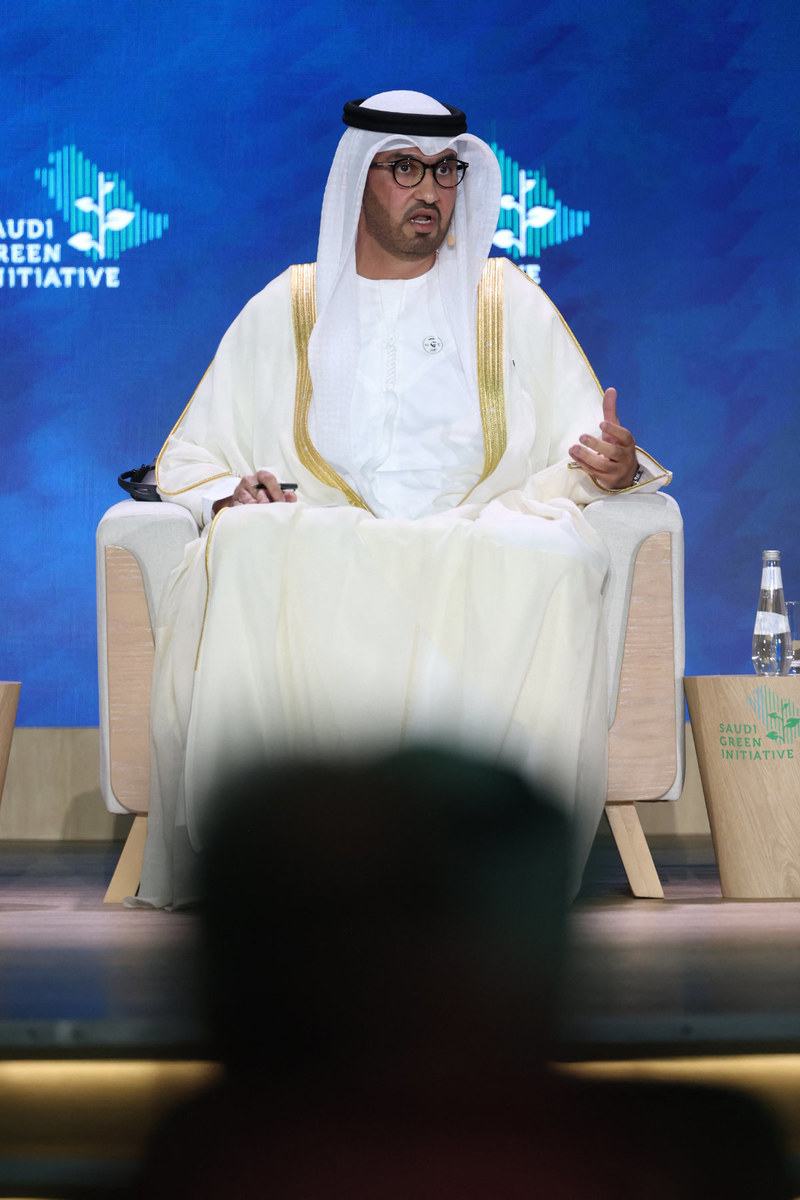
Sultan Ahmed Al-Jaber, UAE special envoy for climate change. (AFP)
Nasser said that there was no contradiction between its net-zero goal and Aramco’s strategy on increasing oil production, pointing out that Aramco crude was less polluting than other types of oil, and that it was also planning to introduce strict controls on methane output, which is potentially more harmful than CO2.
He added that because of a shortfall in energy investment in recent years, spare capacity was declining fast in the global industry. “With the opening of economies there will be more usage of hydrocarbons, more need, more demand, and you will end up in not a good situation.
“We’re doing our part by maintaining our 12 million bpd, building capacity by an additional 1 million barrels, but the rest of the world needs to do its part. Demonising the hydrocarbon industry is not good to help anyone,” he added.
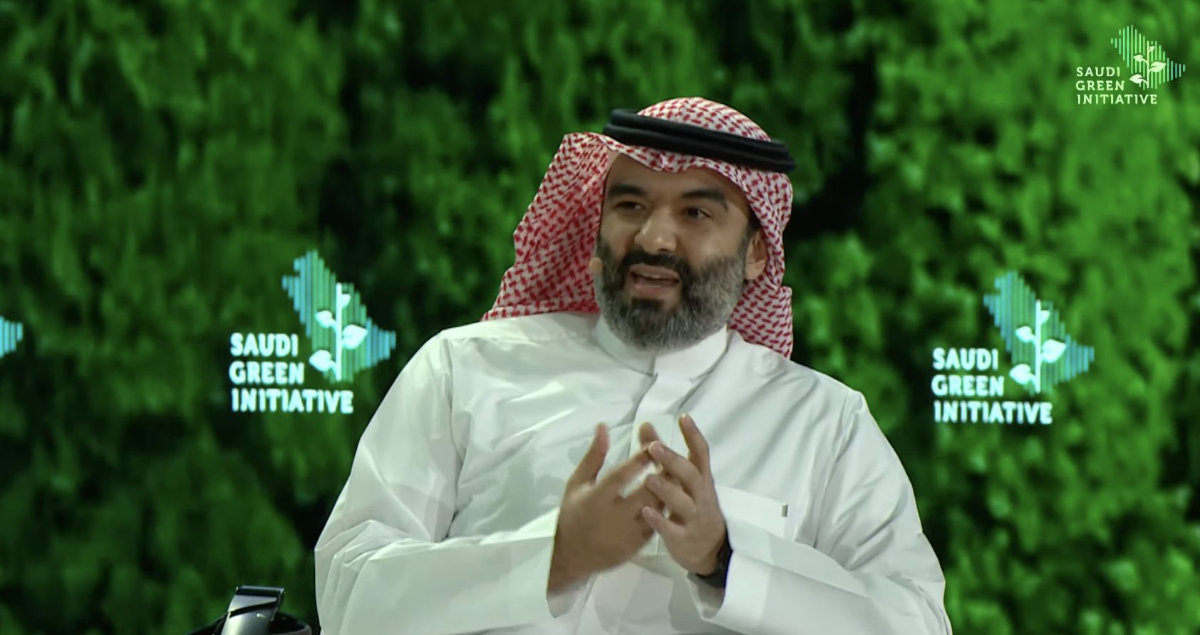
Abdullah Al-Swaha, Saudi Minister of Communication and Technology. (AN photo)
The SGI event will be held every year, allowing for a check on the Kingdom’s progress towards its goals on climate change. “We want to be held accountable,” Prince Abdulaziz said.
There were three areas of focus, he added: “Energy security, sustainable economic growth and prosperity, and attending to the serious issue of climate change. We can achieve all three without compromising a single one of them.”
The new Saudi commitment was a message to the world, the prince said. “It enables us to say that we are with you. We share the same concern. We want to evolve.”
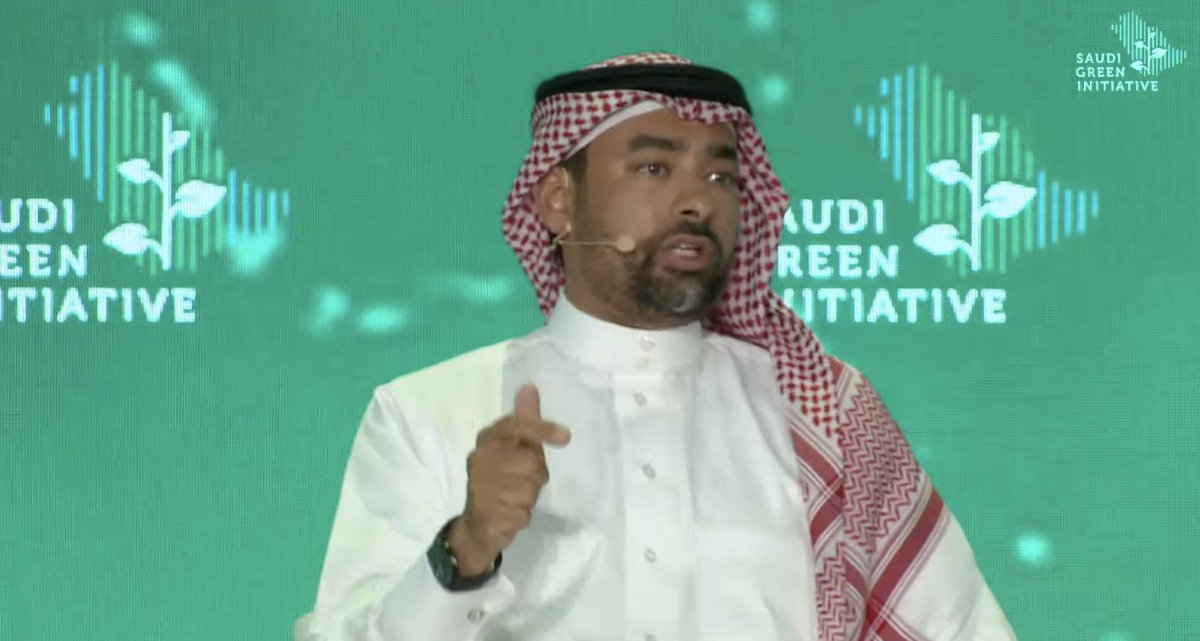
Amr Al-Madani, CEO of the Royal Commission of AlUla. (AN photo)
But he insisted that some of the more extreme solutions, like banning hydrocarbons and halting investment in oil and gas, were not practical proposals for dealing with climate change.
“The world cannot operate without fossil fuels, without hydrocarbons, without renewables … none of these things will be the savior. It has to be a comprehensive solution,” he said.



